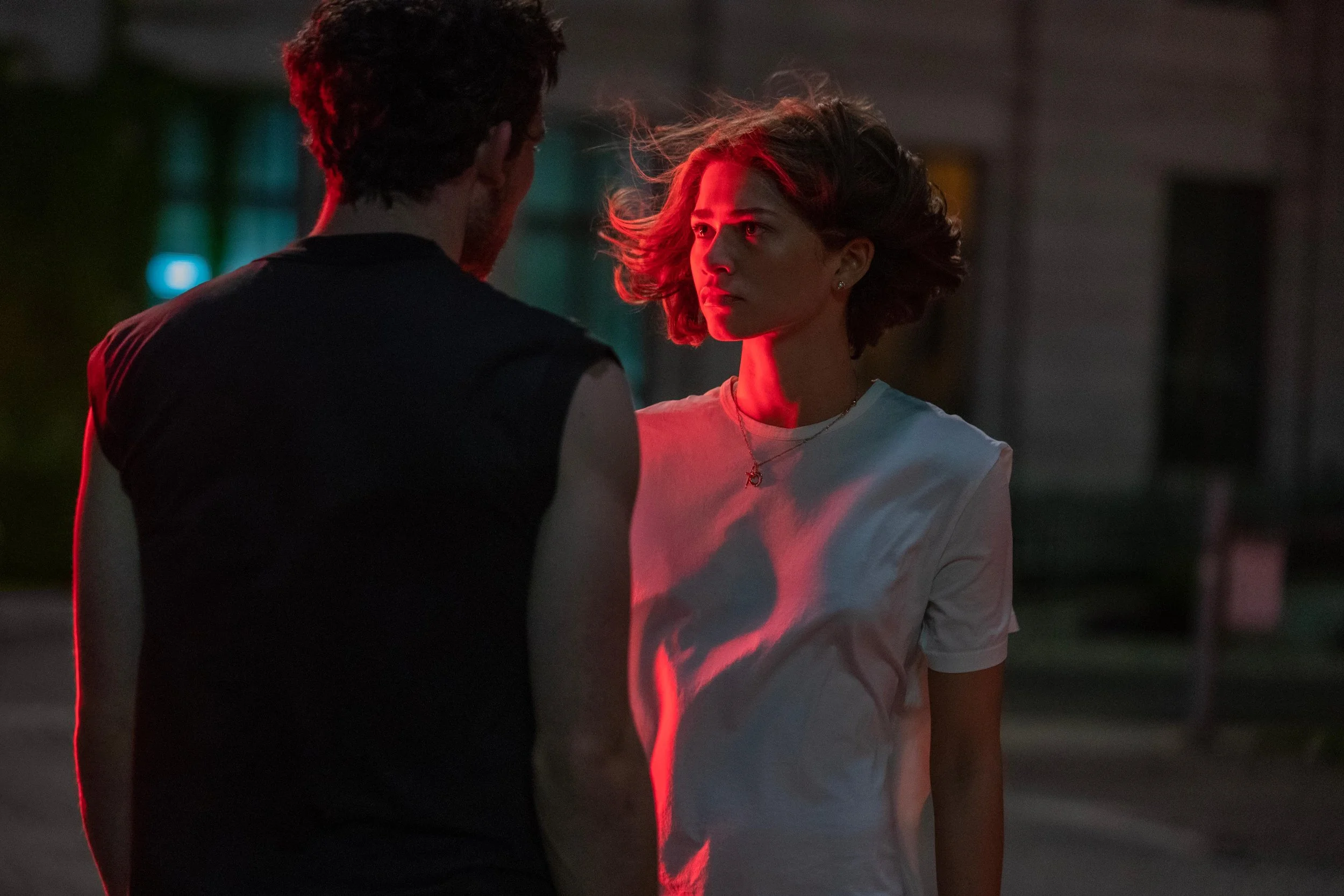Challengers
★★★★★
The tennis is sex, and the sex is tennis in Luca Guadagnino’s sleek and sizzling “Challengers,” a propulsive time-shifting story of lust and competition and betrayal, centred around a love triangle of three elite athletes. In the midst of the most sexless age Hollywood has seen in decades, Guadagnino lights a fuse of passion and eroticism with an exploration of relationships and power dynamics in which the sweaty volleying of carnal give-and-take is as provocative on the court as it is in the bedroom.
In the film’s 2019-set present, Tashi (Zendaya) is a former tennis player turned coach, who enlists her husband Art (Mike Faist), a global superstar in men’s tennis, in a low-stakes Challengers competition to help him regain his dwindling confidence. However, standing on the other side of the net is Patrick (Josh O’Connor), Tashi’s ex-boyfriend and Art’s former best friend. As flashbacks and a fragmented narrative structure quickly inform us, there is much more at stake in this match than a simple win-or-lose. Dancing through the trio’s college beginnings and the decade that follows, “Challengers” relishes in every twist and turn, and is consistently, deliciously, seductive in its untangling web of plot.
Guadagnino has made a name for himself seducing an audience. Here, he finds insatiability in restraint. The sex scenes are steamy but markedly sparse, if they could even be called sex scenes. They’re a tease. The real release of sexual tension comes on the court, where beads of sweat drip onto the lens and suggestive grunts ring through the stands. The tennis is sex, and the sex is tennis. Because a game of two, engaged in a duel of the mind and body, is inherently intimate. A relationship is formed, and strengthened with each serve and return. Tennis is a relationship, Tashi explicitly states near the film’s beginning. Even when the rackets are hung up, a game is still being played in the complex dynamics of the central trio. Cutting insults and flirtatious banter whip across the screen like a rally, points are won and lost in each conversation. Every scene is a battle to win.
The same explosive intensity is found in its cast. Zendaya is unlike we have ever seen her; confidently assured, a force of nature. This would be a star-making performance if she weren’t already one of the most famous actresses on the planet. Tashi is the central axis upon which the film’s events rotate, and Zendaya carries that weight with both vigor and vulnerability. The miraculous Mike Faist (the Riff of Spielberg’s wonderful “West Side Story”) brings tremendous levity and sincerity to Art Donaldson, imbuing him with an indelible sweetness that Faist masterfully contorts into twisted determination at the drop of a hat. For my money, it’s the film’s most lived-in performance. Meanwhile, Josh O’Connor’s Patrick Zweig is sly and lively, always poised for the attack like a predator ready to pounce. He chews up the screen, you can’t look away. It’s a film of three performers, three players, at the top of their game, at peak performance.
Similarly, Trent Reznor and Atticus Ross have perhaps never been better. The musicians/composers raise their own bar yet again with a pulsing earworm of a score that is, recency-bias be damned, one of my favourite film scores of all time. Its techno club beats and rhythms seem ill-fit for the subject, and through this apparent juxtaposition the score actually establishes the film’s unique tone singlehandedly. A breathtaking achievement on every single level, it is quite literally all I have been listening to since I first heard it. You’ve found your new workout mix, or just discovered your motivation to begin working out.
And then Guadagnino erupts in the film’s final fifteen minutes. Already stylistically memorable in its flashy editing and evocative cinematography, the film’s finale breaks free of convention with some of the most blood-pumping, heart-racing series of images and sounds I’ve ever had the pleasure to witness on so large a screen. Reznor and Ross’s score is a welcome auditory bombardment as Guadagnino rapidly bounces us around the court. A step here, a swing there, then a hit, then a grunt. Suddenly we’re the court itself, looking skyward at the players leaping atop us. Then we’re the tennis ball, visual madness as we fling through the air, racket to racket. We’re spinning, we’re falling. The cinematic language in its most creatively expressive. I was levitating. Elsewhere, the film calls attention to its stylistic ambitions in subtler ways. Characters sling words at each other from opposite ends of the frame, asking the viewer to dart their eyes back and forth like following a frenetic match on the court. Guadagnino has never felt both so unbridled and so in control. It’s bliss.
“Challengers” is deceptively simple. On the surface, a standard love-triangle melodrama set in the high-intensity world of professional tennis. Beneath the veneer, a complicated and alluring puzzle of loyalties and romance and desire, blurring the line between the impassioned physical release of athleticism and sexuality. Tennis is relationships, relationships are tennis. Back and forth, one to the other. An intimate, shared act of passion and intensity between two people. Guadagnino’s film is electric, a pure shot of adrenaline. It’s sexy and thrilling and funny, the kind of capital-M Movie we see far too few of these days. It is fascinatingly elusive in its ambiguities, endlessly rewarding in its complexity, and simply entertaining in its sheer visual and auditory force. I don’t know what it has been laced with, but I have become addicted to “Challengers.” Fighting against my better instincts and every force in my mind and body, I have been unable to stop thinking about it since first seeing it. Like an unforgettable night with a romantic partner. Or the euphoric high of a riveting tennis match. In “Challengers” these things are one and the same.

